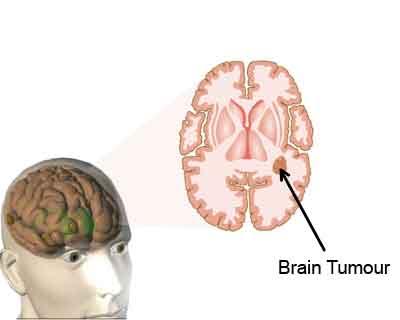- Home
- Editorial
- News
- Practice Guidelines
- Anesthesiology Guidelines
- Cancer Guidelines
- Cardiac Sciences Guidelines
- Critical Care Guidelines
- Dentistry Guidelines
- Dermatology Guidelines
- Diabetes and Endo Guidelines
- Diagnostics Guidelines
- ENT Guidelines
- Featured Practice Guidelines
- Gastroenterology Guidelines
- Geriatrics Guidelines
- Medicine Guidelines
- Nephrology Guidelines
- Neurosciences Guidelines
- Obs and Gynae Guidelines
- Ophthalmology Guidelines
- Orthopaedics Guidelines
- Paediatrics Guidelines
- Psychiatry Guidelines
- Pulmonology Guidelines
- Radiology Guidelines
- Surgery Guidelines
- Urology Guidelines
Resistance Mechanism of Aggressive Brain Tumors Revealed

Brain tumors subject to therapy can become resistant to it through interactions with their tumor micro environment rather than because of anything intrinsic about the tumor itself, a new study in mice suggests. The resistance mechanism outlined in the study involves a particular enzyme and can be overcome using other drugs that target this newly identified signaling pathway. Glioblastoma multiforme (GBM) is a common and aggressive type of adult brain tumor; current standard treatment only minimally prolongs survival. Macrophages, types of white blood cell that ingest debris, are found in abundance in GMB tumors, and tend to express high levels of colony stimulating factor-1 (CSF-1). Here, Daniela Quail et al. showed that inhibiting CSF-1 with a drug called BLZ945 caused tumor regression in mice; however, the majority of GBM tumors ultimately developed resistance to BLZ945, a phenomenon of interest as cancer drugs targeting CSF-1 are currently in clinical trials in multiple settings. Further investigation revealed that GMB recurrence correlated with elevated activity of a tumor enzyme called PI3-K, which was in turn driven by an environmental influence, macrophage-secreted IGF-1. Mice that were treated with BLZ945 plus a PI3-K or IGF-1 inhibitor benefited from significantly longer survival than control mice, the researchers showed. By implanting BLZ945-resistant tumors into naïve mice, Quail et al. demonstrated that GBM tumors use this this PI3-K/IGF-1 mechanism to manipulate the surrounding microenvironment to their advantage. Thus, they say, tumors can also develop resistance through microenvironment-dependent mechanisms, independent of the tumor itself. Whether the findings will translate to a human model of glioma remains to be seen.

Disclaimer: This site is primarily intended for healthcare professionals. Any content/information on this website does not replace the advice of medical and/or health professionals and should not be construed as medical/diagnostic advice/endorsement or prescription. Use of this site is subject to our terms of use, privacy policy, advertisement policy. © 2020 Minerva Medical Treatment Pvt Ltd